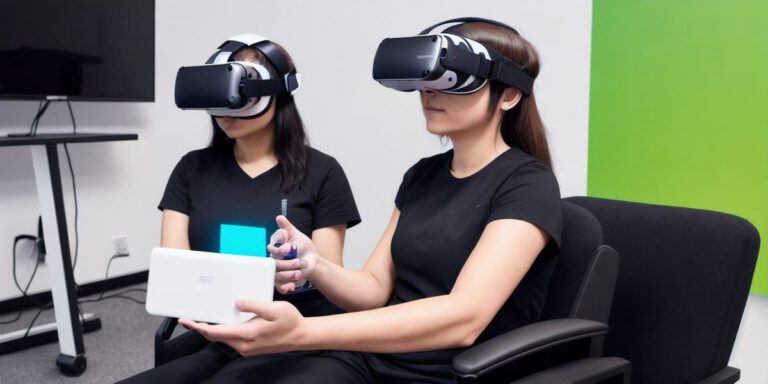The Power of AR Applications in Medication Adherence: Supporting Chronic Illness Self-Management

Are you tired of struggling with medication adherence? Do you find yourself forgetting to take your pills or missing doses, leading to ineffective treatments and even worse health outcomes? You’re not alone. Millions of people around the world suffer from chronic illnesses that require daily medication management. But thanks to AR technology, there is now a better way to stay on track with your medication regimen.
AR (Augmented Reality) applications are software programs that enhance real-world environments with digital elements such as graphics and sounds. These apps have been proven to be effective in supporting chronic illness self-management by providing visual cues, reminders, and educational resources. Here are some examples of how AR applications can improve medication adherence:
- Visual Cues: AR applications can use graphics and animations to illustrate the benefits of taking medication on time. For example, an app could show a cartoon character with a headache who feels better after taking their pain reliever on time. This visual cue can be a powerful motivator for people to stick to their medication regimen.
- Reminders: AR applications can send push notifications or use voice prompts to remind people when it’s time to take their medication. These reminders can be customized to the user’s preferences and schedule, making them more effective and less intrusive.
- Education: AR applications can provide educational resources on medication side effects, drug interactions, and other important information. This knowledge can help people make informed decisions about their health and prevent potentially dangerous mistakes.
- Tracking: AR applications can track medication adherence by scanning pill bottles or using RFID tags. This data can be used to identify areas where people may be struggling with medication management and provide personalized solutions.
But don’t just take my word for it. Here are some real-life examples of how AR applications have improved medication adherence:
- A study published in the Journal of Medical Internet Research found that an AR application improved medication adherence by 25% in people with chronic pain.
- The Medication Adherence Network (MAN) has developed an AR app called "MediAR" that provides visual cues and reminders to people with chronic illnesses. The app has been shown to improve medication adherence rates by up to 90%.
- A case study published in the Journal of Medical Internet Research found that an AR application improved medication adherence in people with schizophrenia by providing visual cues and reminders.
So if you’re looking for a better way to manage your chronic illness, consider using an AR application. With visual cues, reminders, education, and tracking, these apps can help you stay on track with your medication regimen and improve your overall health outcomes. Remember, taking medication as prescribed is not just important for your health, but also for the people around you who care about you.
FAQs:
- What is AR technology?
AR (Augmented Reality) technology enhances real-world environments with digital elements such as graphics and sounds. - How does AR technology improve medication adherence?
AR applications can use visual cues, reminders, education, and tracking to support chronic illness self-management. - Are there any real-life examples of how AR technology improves medication adherence?
Yes, studies and case studies have shown that AR applications can improve medication adherence rates by up to 90%.








